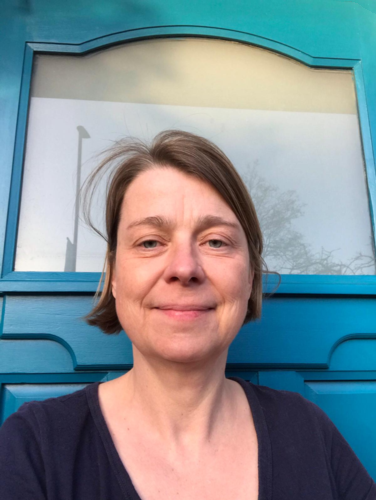 by Charlotte Augst, Chief Executive, National Voices
by Charlotte Augst, Chief Executive, National Voices
If the pandemic has taught us anything, it is that the NHS cannot succeed on its own. Whether it’s people’s behaviours around masks or hygiene, the contribution of volunteers to keeping people safe and connected, or partnerships with communities and their organisations to reach people who might otherwise lose out on services (such as the vaccine) – the NHS needs partners.
Here at National Voices, we obviously think mostly about the partnerships that are required to help both the NHS and the voluntary, community and social enterprise sector (VCSE) to reach more people more effectively. And it strikes me that there is learning for both sides in those partnerships. The formal health system needs to move away from merely transactional definitions of what it wants from the VCSE. We are so much more effective if we can stay true to our mission, place the person at the centre, and then weave whatever input they need into their lives with them. Where contracts and grants become overly prescriptive, it means the VCSE cannot add its true value. A colleague from Turning Point, one of our members, told me the other day how a service they were providing was only allowed to write a prescription for someone’s addiction, not for their pneumonia (which they happened to also find) with a dose of antibiotics. This is contracting that fragments and hollows out what makes the VCSE different. Similarly, where access criteria become over-defined and restrictive, people end up falling through the cracks.
In addition, it is important that the formal health and care system doesn’t bring the VCSE into the conversation only where they need a defined service to be provided. We are so much more than service providers. We are advocates, researchers, innovators, and we know so much about the needs and hopes of the people we support, that the system would massively benefit from just having us in the room when services are designed or commissioned.
But it is not like the VCSE is perfectly lined up to support good partnership working with the NHS either: At times, our focus on a single, narrowly defined mission can mean that we fail to support people with complex needs holistically. And the necessity for us to follow the money and energy mean that we can end up working on issues and for communities that are ‘easy’ – because we cannot readily fund and sustain services that reach people who might be harder to support effectively.
You won’t be surprised if I argue that VCSE infrastructure is crucial for addressing all these issues: We can work as an easy to engage interface and convenor for statutory partners. We can strengthen relationships that can then quickly be brought to bear on thorny issues. We can collate and synthesise what our members do and know. And we can in partnership address the inverse care law, focusing investment and attention on people who are not well served by existing models of support.
This is why it is great that ARMA exists, bringing together the voice and perspective of people who live with musculoskeletal and arthritic conditions, and that you work with us, in a wider coalition, foregrounding the needs and hopes of people living with ill health or disability. You are a very valued member, always up for collaboration, always knowledgeable, always ready to lean in.
Thank you for all you do.
Charlotte Augst on Linkedin
@CharlotteAugst on Twitter
Charlotte is the Chief Executive of National Voices. She came to London in 1997, after completing a law degree in Germany, to pursue postgraduate studies at the University of London. She holds a PhD in law and medical ethics. Charlotte has held senior positions in health and research policy – in Parliament, for national regulators, and in the charitable sector.
 Since starting at National Voices, Charlotte has led a strategic reorientation of the organisation towards a more visible role for its members – their insight, practice and innovations – and towards grounding National Voices’ influencing work more explicitly in the experience of people who live with ill health, disability or impairment. National Voices is the leading coalition of health and social care charities in England. We work together to strengthen the voice of patients, service users, carers, their families and the voluntary organisations that work for them. We have more than 160 members covering a diverse range of health conditions and communities, connecting us with the experiences of millions of people.
Since starting at National Voices, Charlotte has led a strategic reorientation of the organisation towards a more visible role for its members – their insight, practice and innovations – and towards grounding National Voices’ influencing work more explicitly in the experience of people who live with ill health, disability or impairment. National Voices is the leading coalition of health and social care charities in England. We work together to strengthen the voice of patients, service users, carers, their families and the voluntary organisations that work for them. We have more than 160 members covering a diverse range of health conditions and communities, connecting us with the experiences of millions of people.

